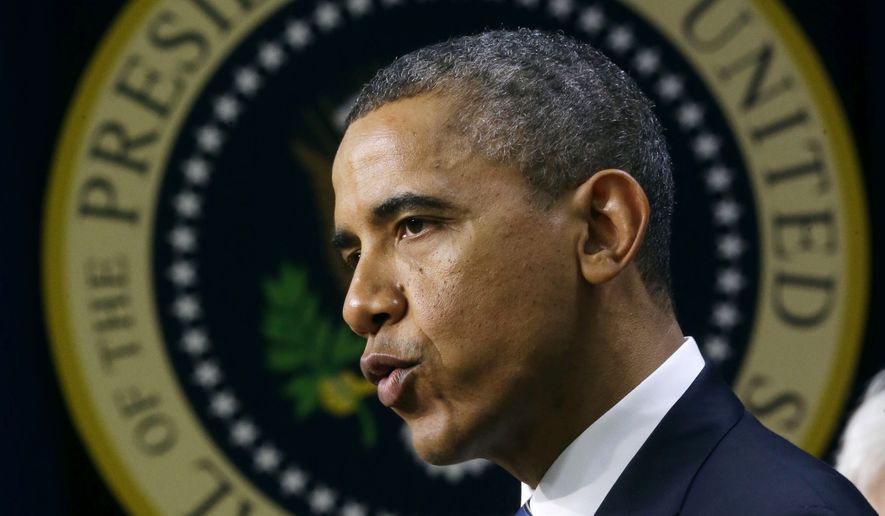The FBI used a female informant to try to pry information from a Trump campaign adviser during the 2016 election season, The New York Times reported Thursday, fueling allegations that the Obama administration spied on a political opponent.
The woman was deployed to meet with George Papadopoulos, a foreign policy adviser to the campaign, at a London bar as part of the FBI’s investigation into suspected coordination between Russia and the Trump campaign, the newspaper reported.
“There is a word for this in the English language: spying,” said Brad Parscale, President Trump’s campaign manager for the upcoming election. “For two years, Democrats and their allies in the media have lied to the American people about the Russia collusion hoax, when all along the real scandal was the Obama administration using the Justice Department to spy on a political adversary’s campaign.”
Mr. Papadopoulos said Thursday that he is not sure the woman, who gave her name as “Azra Turk,” was working for the FBI. He figures she was more likely with the CIA, which he said was probably working with Turkish intelligence.
He said Ms. Turk’s name, her attractiveness and her poor command of English convinced him she wasn’t the research assistant she claimed to be.
“She was CIA and affiliated with Turkish intel,” he said in a message on Twitter.
In a tweet hours later, he speculated on an “Obama WH/CIA/FBI” plot, saying “the ultimate goal was to overthrow Trump.”
Mr. Papadopoulos was in London at the behest of Stefan Halper, a Cambridge University professor who was also acting on behalf of the FBI to try to glean information from the Trump adviser. Mr. Papadopoulos attracted U.S. investigators’ interest after reportedly telling an Australian diplomat that he learned Russia had compromising information on Democratic presidential candidate Hillary Clinton.
The day after Ms. Turk tried to talk to him at the bar, she and Mr. Halper met together with him at what he told congressional investigators was “some diplomatic hangout” in London.
Their attempts failed to glean any useful information, but Mr. Papadopoulos said he sensed things were off.
“She never explicitly said, ’I will sleep with you for this,’ but her mannerisms and her behavior suggested that she was flirtatious, and she was very open to something like that if I ended up providing what she wanted, whatever that was,” he told the House Judiciary Committee in closed-door testimony in October.
The Times said the FBI’s decision to use a second plant to target Mr. Papadopoulos “shows the level of alarm inside the FBI” over possible Russian government election meddling. It also showed a stunning willingness by an administration controlled by one political party to conduct an investigation into a nominee of the opposing party.
Attorney General William P. Barr has said he is reviewing decisions made by the FBI and the Justice Department during the 2016 campaign.
Those include relying on the largely discredited Steele dossier, a document compiled by a former British spy using information apparently gleaned from Russian sources, to justify a surveillance warrant on Carter Page, another Trump campaign figure.
Mr. Barr said those efforts prove the Obama administration was spying on the Trump campaign. He said the question is whether the spying was legal and warranted.
“To me, the question is always whether or not it’s authorized and adequately predicated spying,” he told senators during testimony this week on the special counsel’s review of the 2016 election and Russian meddling.
The special counsel found that while both Russia and the Trump campaign believed they would benefit from an election loss by Mrs. Clinton, there was no basis to conclude that they systematically coordinated their efforts.
Some Democrats have refused to accept those findings as the last word.
“The report outlined substantial evidence that the Trump campaign welcomed, encouraged and expected to benefit electorally from Russia’s interference in the election,” Sen. Dianne Feinstein, California Democrat, told Mr. Barr in Wednesday’s hearing.
• Stephen Dinan can be reached at sdinan@washingtontimes.com.
• Jeff Mordock can be reached at jmordock@washingtontimes.com.




Please read our comment policy before commenting.